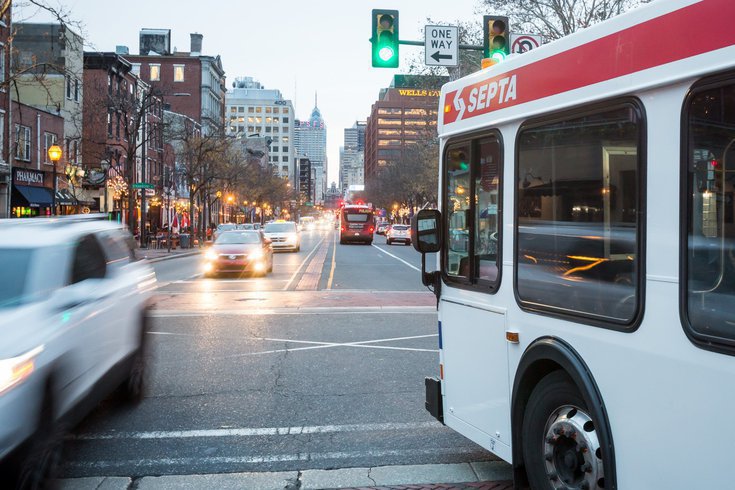
March 01, 2023
 Thom Carroll/for PhillyVoice
Thom Carroll/for PhillyVoice
SEPTA plans to deploy 10 new hydrogen fuel cell electric buses as part of an experimental program that will begin next year.
SEPTA is taking another step toward making the transit system more environmentally-sustainable by purchasing 10 fuel cell electric buses that produce zero tailpipe emissions.
The buses, which are powered by electricity generated from hydrogen fuel cells, will be part of an experimental program that will begin operating next summer out of SEPTA's largest bus depot in North Philadelphia. The program will evaluate the viability of a zero-emission bus fleet.
Over the last two decades, SEPTA has increasingly switched to hybrid diesel and electric buses, which now make up more than 90% of its fleet.
"That has resulted in a fleet that is cleaner and more efficient to operate," SEPTA Board Chairman Pasquale T. Deon Sr. said. "With this pilot program for fuel cell electric buses, we will similarly be on the cutting edge of zero-emission technology."
Hydrogen buses operate more quietly, have lower maintenance costs and produce half the lifecycle greenhouse gas emissions as diesel-hybrid buses.
The new buses will be manufactured by New Flyer of America as part of a $17.05 million contract that also includes fueling infrastructure, training aids and tools. The purchase was subsidized by a $1.5 million grant from the Federal Transit Administration.
SEPTA is overhauling its bus route system for the first time in six decades. In January, implementation of the "bus revolution" initiative was postponed until 2024 after SEPTA was met with pushback at a community meeting.
SEPTA's proposed plan for a redrawn bus network reduces the number of routes from 125 to 99, increases the number of "frequent" bus routes from 32 to 44, and introduces the MAX series, which stands for the maximum time between buses. Riders waiting for the next 10MAX bus, for example, would only have to wait 10 minutes.
Changes to the bus network will not be finalized without approval from SEPTA board members. Another round of information sessions and public meetings will be held in the spring to incorporate more feedback on the plan.